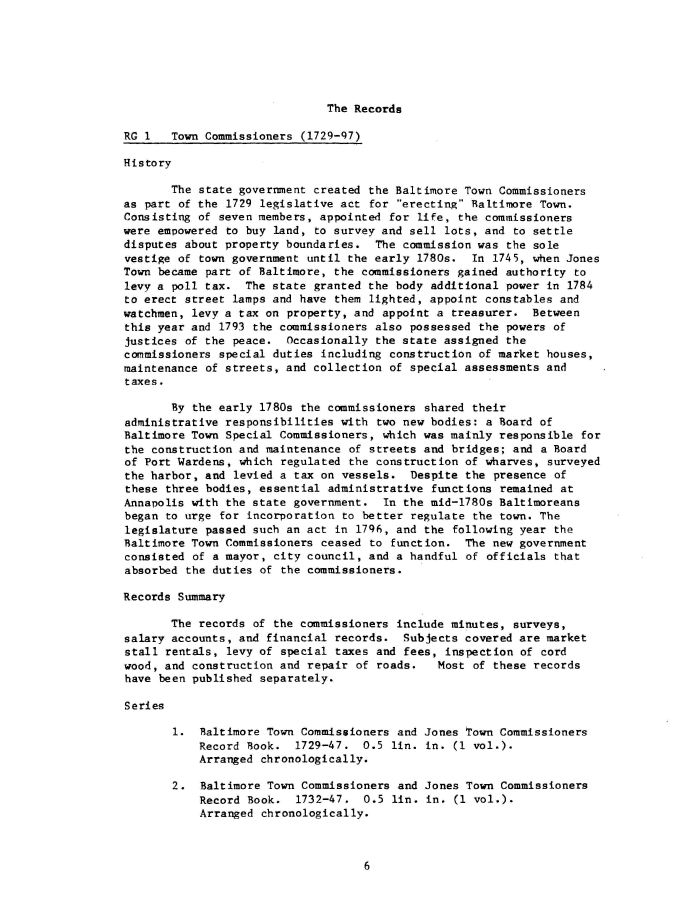|
The Records
RG 1 Town Commissioners (1729-97)
History
The state government created the Baltimore Town Commissioners
as part of the 1729 legislative act for "erecting" Baltimore Town.
Consisting of seven members, appointed for life, the commissioners
were empowered to buy land, to survey and sell lots, and to settle
disputes about property boundaries. The commission was the sole
vestige of town government until the early 1780s. In 1745, when Jones
Town became part of Baltimore, the commissioners gained authority to
levy a poll tax. The state granted the body additional power in 1784
to erect street lamps and have them lighted, appoint constables and
watchmen, levy a tax on property, and appoint a treasurer. Between
this year and 1793 the commissioners also possessed the powers of
justices of the peace. Occasionally the state assigned the
commissioners special duties including construction of market houses,
maintenance of streets, and collection of special assessments and
taxes.
By the early 1780s the commissioners shared their
administrative responsibilities with two new bodies: a Board of
Baltimore Town Special Commissioners, which was mainly responsible for
the construction and maintenance of streets and bridges; and a Board
of Port Wardens, which regulated the construction of wharves, surveyed
the harbor, and levied a tax on vessels. Despite the presence of
these three bodies, essential administrative functions remained at
Annapolis with the state government. In the mid-1780s Baltimoreans
began to urge for incorporation to better regulate the town. The
legislature passed such an act in 1796, and the following year the
Baltimore Town Commissioners ceased to function. The new government
consisted of a mayor, city council, and a handful of officials that
absorbed the duties of the commissioners.
Records Summary
The records of the commissioners include minutes, surveys,
salary accounts, and financial records. Subjects covered are market
stall rentals, levy of special taxes and fees, inspection of cord
wood, and construction and repair of roads. Most of these records
have been published separately.
Series
1. Baltimore Town Commissioners and Jones town Commissioners
Record Book. 1729-47. 0.5 lin. in. (1 vol.).
Arranged chronologically.
2. Baltimore Town Commissioners and Jones Town Commissioners
Record Book. 1732-47. 0.5 lin. in. (1 vol.)-
Arranged chronologically.
|

